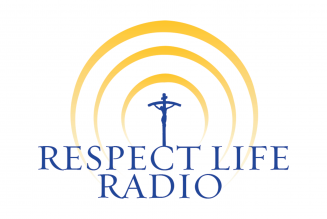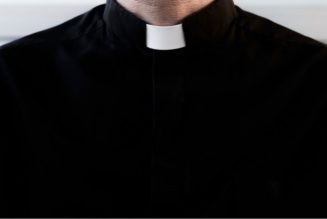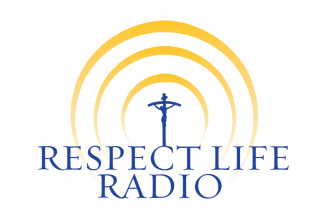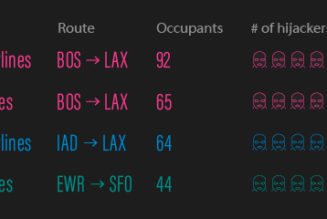ROME – Maybe there’s no single blueprint for reform, but one time-honored propeller for change often is the intersection of scandal and necessity. That certainly seems to be the case in Pope Francis’s Vatican with regard to finances, where at no time since 2013-14 have reform moves been rolling out so fast and furious as right now.
The difference is that seven years ago, the flurry of activity was mostly about new laws and structures. Today it’s more about application and enforcement, which is always trickier, because it means specific people could lose jobs or power and, in some cases, they could face criminal indictments.
The latest such development came Tuesday, when the Vatican announced that following a raid on the offices of the Fabbrica di San Pietro, the office that administers St. Peter’s Basilica, the pope has named Italian Archbishop Mario Giordana, a former papal ambassador to Haiti and Slovakia, as “extraordinary commissioner” of the fabbrica with the charge to “update its statutes, shed light on its administration and reorganize its administrative and technical offices.”
According to reports in the Italian press, the move comes after repeated internal complaints within the fabbrica about irregularities in contracting, raising suspicions of favoritism. The 78-year-old Giordana, according to Tuesday’s Vatican statement, will be assisted by a commission.
Despite the general stall related to the coronavirus over the last several months, it’s been drive time in terms of a financial reshuffle in the Vatican, with Tuesday’s shake-up merely the latest chapter.
Italy went into a nationwide lockdown on March 8, and since that time, Pope Francis has taken the following steps:
- Appointed Italian banker and economist Giuseppe Schlitzer on April 15 as the new director of the Vatican’s Financial Information Authority, its financial vigilance unit, after the abrupt departure last November of Swiss anti-money laundering expert René Brülhart.
- Fired five Vatican employees on May 1 believed to have been involved in a controversial purchase of a piece of property in London by the Secretariat of State, which unfolded in two stages between 2013 and 2018.
- Convened a meeting of all department heads to discuss the Vatican’s financial situation and possible reforms in early May, featuring a detailed report by Jesuit Father Juan Antonio Guerrero Alves, named by Francis last November as prefect of the Secretariat for the Economy.
- Shut down nine holding companies in mid-May based in the Swiss cities of Lausanne, Geneva and Fribourg, all of which were created to manage portions of the Vatican’s investment portfolio and its land and real estate holdings.
- Transferred the Vatican’s “Center for the Elaboration of Data,” basically its financial monitoring service, from the Administration of the Patrimony of the Apostolic See (APSA) to the Secretariat for the Economy, in an effort to create a stronger distinction between administration and oversight.
- Issued a new law on procurement June 1, which applies both to the Roman Curia, meaning the bureaucracy governing the universal church, as well as to the Vatican City State. It bars conflicts of interest, mandates competitive bidding procedures, and centralizes control over contracting.
- Nominated Italian layman Fabio Gasperini, a former banking services expert for Ernst and Young, as the new number two official at the Administration of the Patrimony of the Holy See, effectively the Vatican’s central bank.
What’s driving this flurry of activity?
For one thing, there’s London.
The unfolding scandal has been a massive embarrassment, among other things calling into question the effectiveness of the pope’s reform efforts. It’s especially worrying since presumably, at some point this year the Vatican will face its next round of review by Moneyval, the Council of Europe’s anti-money laundering agency, and if the agency decides the London debacle means the Vatican isn’t serious about compliance with international standards of transparency and accountability, it could be frozen out of currency markets and face significantly higher transaction costs.
For another, there’s the coronavirus.
The analysis presented to the pope and department heads by Guerreo suggests the Vatican’s deficit could balloon by as much as 175 percent this year, reaching almost $160 million, due to declining income from investments and real estate as well as drop-offs in contributions from dioceses around the world as they struggle with their own financial problems.
That deficit comes on top of several long-term structural weaknesses in the Vatican’s financial situation, most of all a looming pension crisis. Basically, the Vatican is over-staffed relative to its resources and struggles just to meet payroll, let alone setting aside the funds that will be necessary as today’s workforce begins to reach retirement age.
In other words, a comprehensive financial house-cleaning is no longer simple a moral desideratum, or a PR drive to avoid future public scandals. It’s a matter of survival, which almost always has the effect of clarifying thinking and lending a sense of urgency.
It remains to be seen how effective these new measures will be. For one thing, it will be important to see whether the review of the fabbrica follows the same script as so many other Vatican inquests into financial scandals, which is to identify a handful of Italian laity, either external consultants or direct employees, and blame it all on them, thereby insulating cardinals and other senior clergy from culpability.
Nevertheless, six months ago it was tempting to conclude that Pope Francis had given up on financial reform. Today, given the double whammy of scandal and debt, he definitely seems in earnest.
Follow John Allen on Twitter at @JohnLAllenJr.










